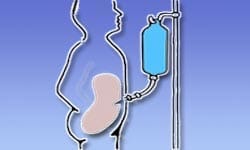CLINICAL PHARMACOLOGY
Mechanism of Action
Levocetirizine, the active enantiomer of cetirizine, is an anti-histamine; its principal effects are mediated via selective inhibition of H1 receptors. The antihistaminic activity of levocetirizine has been documented in a variety of animal and human models.
INDICATIONS AND USAGE
Chronic Idiopathic Urticaria
Levocetirizine dihydrochloride tablets are indicated for the treatment of the uncomplicated skin manifestations of chronic idiopathic urticaria in adults and children 6 years of age and older.
Pediatric use:
information in pediatric patients (age 6 months to 5 years) is approved for UCB Inc.'s levocetirizine dihydrochloride drug product labeling. However, due to UCB Inc.'s marketing exclusivity rights; this drug product is not labeled for such use in those pediatric patients.
DOSAGE AND ADMINISTRATION
Levocetirizine is available as 5 mg breakable (scored) tablets, allowing for the administration of 2.5 mg, if needed. Levocetirizine dihydrochloride tablets can be taken without regard to food consumption.
Adults and Children 12 Years of Age and Older:
The recommended dose of levocetirizine is 5 mg (1 tablet) once daily in the evening. Some patients may be adequately controlled by 2.5 mg (one-half tablet) once daily in the evening.
Children 6 to 11 Years of Age:
The recommended dose of levocetirizine is 2.5 mg (one-half tablet) once daily in the evening. The 2.5 mg dose should not be exceeded because the systemic exposure with 5 mg is approximately twice that of adults.
Children 6 Months to 5 Years of Age:
Pediatric use information in pediatric patients (age 6 months to 5 years) is approved for UCB Inc.'s levocetirizine dihydrochloride drug product labeling. However, due to UCB Inc.'s marketing exclusivity rights; this drug product is not labeled for such use in those pediatric patients. |


